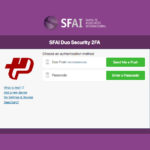Insight by SFAI Global.

Fraud is costing businesses and individuals in the UK £137bn ($189.8bn) each year, according to research published by Crowe UK.
The Financial Cost of Fraud Report, developed by Crowe in conjunction with the Centre for Counter Fraud Studies at the University of Portsmouth, draws on more than 20 years’ extensive research across a range of industries, organizations, and countries, to reveal the true scale of this problem.
For many organizations, fraud is a problem that can be tackled. The report reveals that losses can be, and have been, reduced by up to 40% within 12 months. It is estimated that were organizations in the UK to correctly measure and introduce actions to reduce fraud, savings of up to £55bn could be made annually. This sum is greater than the UK Government’s spending on defense in 2019-20.
To tackle this fraud epidemic, organizations can implement certain actions and practices to reduce the prevalence and impact of fraud losses, says Crowe. These measures cover internal culture change and external support provision, including:
- Changing the balance of human behavior by educating the workforce and mobilizing the honest majority
- Deterring and shrinking the dishonest minority to reduce fraud attempts
- Removing weaknesses in systems to reduce opportunities for fraud (prevention by design)
- Harnessing data science techniques to improve detection of fraud
- Engaging professional investigative support if fraud has occurred and been detected
- Invoking a range of sanctions, including criminal and civil taw, disciplinary, contractual and regulatory sanctions
- Recovering losses with the aid of professional support
Crowe UK head of forensic and counter fraud services Jim Gee said: “New and diverse threats have conspired to ensure that the UK and global economy have suffered rising losses each year, and action to prevent, mitigate and combat fraud has not kept pace.
Fraud needs to be viewed as a business cost. In almost every other area of business life, organizations know to measure and manage their costs. Fraud should be no different, particularly considering the numbers involved.
These sums are stark but may be hard to grasp. In the UK alone, the amount lost to fraud outweighs the wealth of Jeff Bezos, while the amount lost to fraud globally represents more than twice the UK’s entire GDP.
Too many organizations adopt a reactive approach to fraud, seeking only to tackle it once losses have already occurred. That’s an antiquated viewpoint and a change of perspective is needed. Fraud is an ever-present, high-volume, low-value problem, and only a small proportion is detected. The question is not if it is taking place, but at what level. By understanding the nature and scale of the cost, we can reduce its impact enhancing the profitability of companies and ensuring better-funded public sector and charitable organizations.


